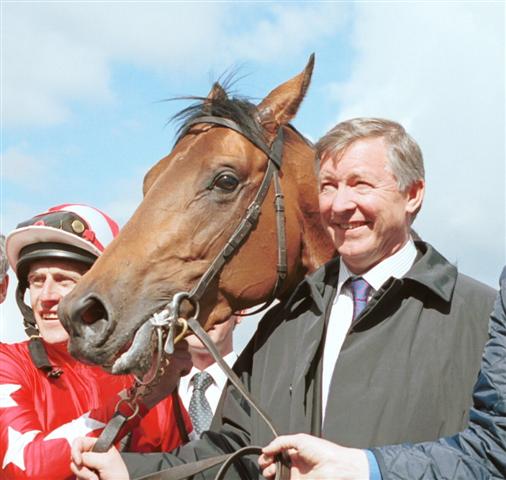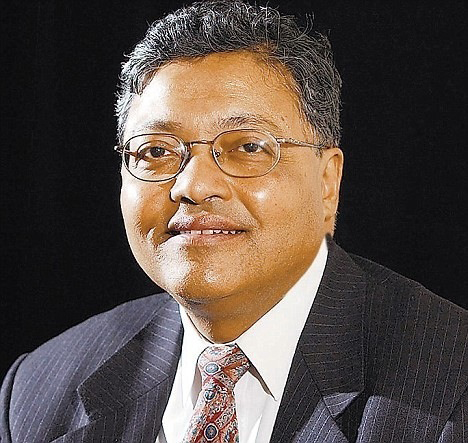History is not always a good precedent for judging the present. But, in the case of Manchester United, history of its ownership and the fans reaction to different owners, tell us a great deal of why the club is once again in turmoil.
The Glazers may be the owners in the firing line at present but all owners of the club since the 50s have had to face the wrath of some of the fans. What is more, the Glazers were not men from Mars who suddenly appeared at the Theatre of Dreams one dark night with borrowed money and took it over.
Yes, they have loaded the club with debt, a club that did not have any before and which, pre the Glazer takeover was warned by its own stockbroker about hoarding cash.
What needs to be remembered is the Glazer takeover of United was, at one stage, encouraged and welcomed by the United board. They saw the Glazers as a white knight who would help them get rid of the troublesome Irish investors John Magnier and JP McManus. The Irish had fallen out with Sir Alex Ferguson over the race horse, the Rock of Gibraltar.
The fans reaction to this essentially private quarrel between the manager and the investors also played a significant part in making sure that, when a bidder with the right price came along, the vilified Irish were only too willing to sell.
Yet the very same Irish had been welcomed by many fans, when days after United’s treble in 1999, stories emerged that racing friends of Sir Alex Ferguson were preparing to buy United. Fans saw this as finally getting rid of the hated Edwards family.
For many United fans, the deal made perfect sense. It seemed neatly to complement Ferguson’s own and growing interest in racing. And, for these fans, news of this Irish interest in United could not have been sweeter. They saw this as finally righting a dreadful wrong that had taken place the last time United had won Europe’s greatest club trophy.
Back in 1968 Busby’s European Cup Final triumph had led to his move upstairs to the board room. But there he did not have much power as the Edwards family, already in charge of the club, consolidated their position. Busby eventually retired and, as the man of football walked out into the sunset, the butcher Louis Edwards and his son Martin took over the club.
Now it seemed with Irish help Alex Ferguson could succeed where Busby failed and become the boss of the entire club.
It may be hard to imagine now but, much as the Glazers are loathed by some fans, for much of his ownership Martin Edwards was also the subject of fear and loathing. This feeling may have been heightened by a certain snobbery felt towards Louis Edwards for having made his money as a butcher. But, apart from bearing the burden of his father’s sin, Martin added to his problems when, in the late 80s, he tried to sell to Michael Knighton and then, in the 90s, very nearly sold to Rupert Murdoch’s BSkyB.

So, at the turn of the century, as Ferguson’s racing friends arrived, there was quite a welcome for them. All that changed of course when Ferguson and the Irish fell out over the Rock. What should have been a private quarrel proved not only public but devastating for United at all levels. The Irish kept asking the board awkward questions and the fans, angered by what they perceived as Irish attacks on their manager, targeted Magnier and McManus. There was even talk of same fans disrupting the Cheltenham Festival which was only prevented by an intervention by Sir Alex himself.
The United board, struggling to deal with the Irish and their demands as investors, could not wait to get rid of them. This led to David Gill, the chief executive, and Roy Gardner, then chairman, looking for a white knight. They actually saw the Glazers as the men to rescue them from the awful Irish.
At this stage, near the end of 2003, the Glazers, who had been buying United shares, had given no thought to mounting a takeover of United. The idea of the takeover was planted in their heads when they first met David Gill. It was at this meeting that they realised how much the Manchester United board felt under siege from the Irish. At this meeting with Joel and Avi Glazer, Gill told them that, if they offered £3 a share, the Irish would sell and such a move would be welcomed by the board with open arms.
£3 a share was to prove an important figure for, when in May 2005 the Glazers finally made their move and approached the Irish, this was the sum they offered the Irish who immediately accepted. The Irish, thoroughly disillusioned with the United board and the fans, were only too happy to sell.
By this time however it was the Glazers not the Irish who were the devils both in the eyes of the board and the fans. They had borrowed heavily to take over United but for all the protests of the fans and the board, the Glazer takeover could not be prevented.
The question now is: can the Glazers be removed? Can the protest organised by the fans find another white knight, one that will remain a white knight and not be suddenly transformed into a demon as previous owners have been?
Two weeks ago there was much media excitement about such bidders being lined up to buy Manchester United from the Glazers. Keith Harris of Seymour Pierce was extensively quoted on this. But, look back through the past as I have done and have chronicled in my books on Manchester United, and you will find many such stories in the two years leading up to the Glazer takeover.
What is more these stories invariably featured Harris. He had been at the heart of the United’s board plans to sell to Rupert Murdoch back in 1998. He had been in touch with the Glazers, then would seek to organise fans against them, driven, perhaps, by his desire to play a central role, possibly as chairman of the club he loves. Stories of Harris and a possible bid for United only ceased in the summer of 2005 when the Glazers finally won the club.
They have started again but that does not mean that a takeover is imminent or even remotely possible.
The fans frustration over what the Glazers have done to their club is evident but, to change things and reduce the club’s debt, there would have to be some form of Government intervention specifying debt ceilings for football clubs. For all the noises being made, there is no evidence to suggest that the Government will intervene in the management of football clubs.
Manchester United will continue to have owners who provoke the wrath of their fans. The wrath may be forgotten as United win trophies but the underlying problems of ownership and the owners relations with the fans will remain.
Mihir Bose is one of the world’s most astute observers on politics in sport and, particularly, football. He formerly wrote for The Sunday Times and The Daily Telegraph and until recently was the BBC’s head sports editor. He is the author of Manchester DisUnited: Trouble and Takeover at the World’s Richest Football Club”

